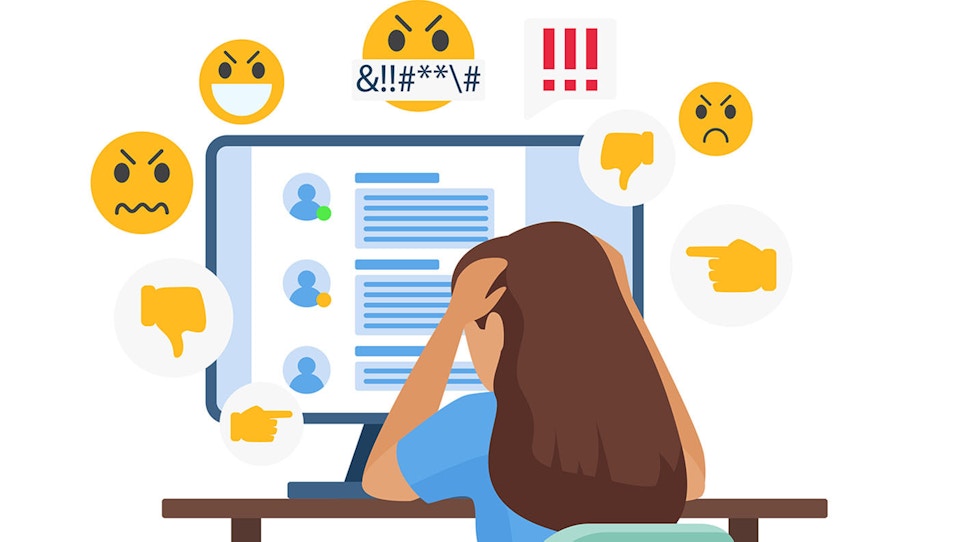Trolls are an unfortunate part of the current online landscape. If you’re involved in social media, you’ve run across them, and if your business has social media accounts, you or one of your employees are dealing directly with them. It’s happening so often these days that it’s best to develop a plan to stop feeding them and starve them out.
Ultimately, the goal of your social media accounts is business promotion. The goal of the troll is to disrupt and, if possible, hurt your business. When they attack in concert with others, you risk being a victim of cancel culture. And make no mistake, cancel culture isn’t the sole purview of one political extreme or another. People you would consider allies may join in the mayhem, simply for sport.
Remember, not everyone who criticizes your business is a troll. Some are customers with legitimate complaints. Consequently, read the comment and evaluate it, considering if it has merit. If there’s a legitimate issue, address it in both word and action. Acknowledge the issue, apologize, make it right, and take action to prevent it from happening again. Transparency is best, so by all means, don’t delete every comment that criticizes your company. You’ll just attract more. Just deal with them and move on.
If you’ve identified an actual troll, remember, they are not your customer, and that brings us to a short aside: The customer isn’t always right. Some customers are unreasonable in their expectations and can be as bad as trolls when it comes to how they treat your business. It’s okay to fire a customer. By all means, do everything you can to satisfy the customer’s reasonable demands. But if they are being abusive or refusing to accept the situation as it stands, go ahead and refund their money and cross them off the list of anyone you will do business with. Let them know of your decision in a firm, polite statement. Less is more; don’t belabor the point.
Some trolls can be abusive, using foul language and even threats. They have crossed the line of decent behavior and deserve no place on your platform. Consequently, if they get to be too much, ban them, and don’t regret it one bit. You and your employees do not deserve to be abused. If they threaten, and you know who they actually are, report them to the authorities.
When you ban them, explain why they were shown the door so that others understand the standards of behavior expected when interacting with your brand and others. If you choose to ban a troll from your social media platform or a comments section on your website, you may consider deleting their comments as well, especially if they are abusive or threatening or laden with foul language. This is a tough call, but leaving them there gives them a degree of legitimacy.
Most trolls will hide behind fake names and use IP masking if they believe their IP address will be tracked. This can make it difficult to ascertain who they actually are. Unfortunately, they like to come back with another fake name to continue their shenanigans. However, like a gambler, they often have “tells,” such as preferred phrases as well as similar screen names and email addresses. Further investigation of items like email addresses often leads to a much larger understanding of who these individuals are in real life.
There are plenty of marketing professionals who will tell you that any publicity is good publicity, because it exposes your name to new people and search engines reward engagement. However, there’s not much joy in some of the negative publicity sticking to your brand, with strangers repeating falsehoods about your business long after the situation is over.
You can’t wait a troll out, hoping they’ll just go away. Negative information spreads like wildfire. Deal with it immediately. Set the record straight with a clear, polite and concise reply. Don’t take their bait. Stay on topic and don’t allow the troll to take control of the conversation, changing the subject at will to draw out the exchange and seek advantage. They’re looking for attention from others.
If you work with social media influencers or affiliated brands, let them know what is going on as quickly as possible. They’ll probably be getting questions from their followers if they are affiliated with you. You can enlist them as part of your effort to correct the record. Make sure they understand the situation and provide them with a statement or some talking points from your company. Likewise, reach out to any affiliates if they come under viral attack. Assess the situation and assist if it’s warranted.
Create a checklist for those who deal with your social media accounts, explaining how to engage different types of complaints. Many, such as shipping and returns, can be addressed via an FAQ section on your website. If you have one, direct them there. If in doubt about a situation, have your employees check with a supervisor before engaging.
The worst-case scenario is when false information about your company goes viral, spreading quickly across social media. This can also happen when you let a troll get the upper hand by dealing improperly with the situation. You deal with viral situations in exactly the same way. This often happens at the worst possible time, such as overnight or on the weekend, but you must deal with it as quickly as possible. I’ll say this over and over — maintain the moral high ground and remain polite, direct and concise. Also, be firm, consistently sticking to your point.
Remember, always keep your responses polite, direct and concise. Develop a checklist and consider using an FAQ page on your website to address common issues. Finally, while the title of this article mentions feeding trolls, the point is to starve them. Don’t be afraid to ban trolls from interacting from your social media accounts and remove their ability to influence.






